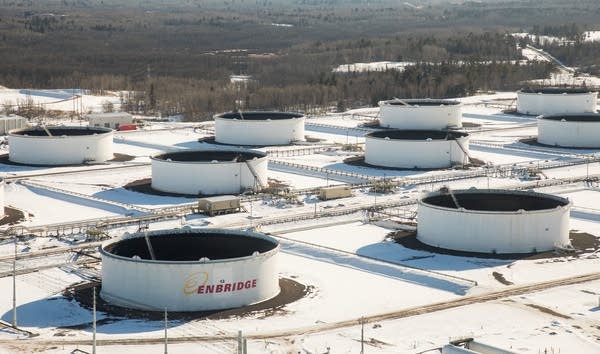State regulators approve Line 3 permits; move pipeline closer to construction

Enbridge's Superior Terminal as seen from the air in February 2018 over Superior, Wis. The terminal receives a vast majority of its oil from Canada --and a lesser amount from North Dakota. According to Enbridge, 21 percent of all daily U.S. crude oil imports pass through the facility.
Derek Montgomery for MPR News file 2018
Go Deeper.
Create an account or log in to save stories.
Like this?
Thanks for liking this story! We have added it to a list of your favorite stories.


